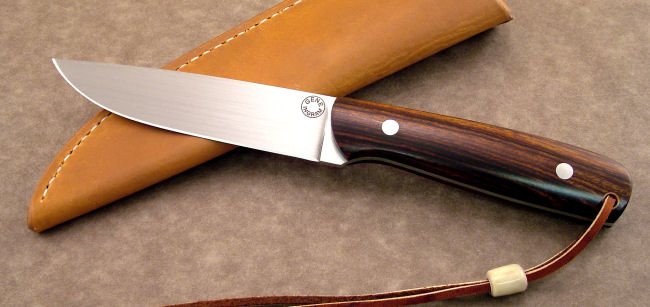addyb said:Martyn,
The Mora 2000 review was interesting because it's edge retention on the cardboard was actually above the carbon variety. Now, seeing as Mora hardens their 12c27 to a slightly lower rating than the carbon, I think Sandvik's wear resistance might have been the determining factor.
I'm not sure how he measures edge retention, but assuming he just felt the ss blade just cut stuff for longer (which is an absolutely valid observation), I would think you are right, it would be down to steel composition. My point is that wear resistance isnt the be-all and end-all. I accept that my carbon blades will wear faster and loose their edge quicker than ss blades, but that doesnt worry me. It's a tradeoff I'm happy to make. I'm happy to add regular little touch-ups with a strop to keep my blade super-keen, in fact I find the process cathartic. I prefer the ease of sharpeing with carbon and the overall springy-toughness of a softer carbon blade.
Like I say, largely down to personal taste.

